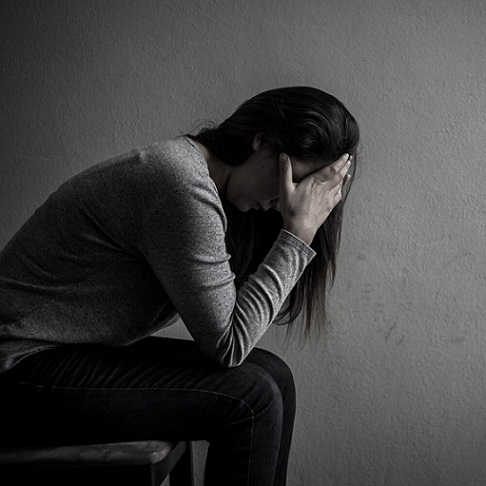Depression
You’re Not Alone: Navigating Life with Depression
5 Science-Backed Strategies to Overcome Depression and Reclaim Joy in Your Life

Feeling down? You’re not alone. Everyone experiences sadness, after a breakup, job loss, academic setback, or the death of a loved one.
These emotions are a natural part of being human. But when low mood lingers for weeks or months, interferes with daily functioning, or saps your motivation, energy, and self-worth, it may be clinical depression, a serious but treatable condition.
The good news? Research shows that lifestyle changes, combined with professional support when needed, can significantly reduce depressive symptoms. Below are five proven, practical strategies backed by psychology, neuroscience, and public health studies to help you move toward healing and happiness.

1. Let in the Light: Harness the Power of Sunlight
Why it works:
Sunlight regulates your circadian rhythm and boosts serotonin, a brain chemical linked to mood stability. Lack of natural light (especially in winter) can trigger Seasonal Affective Disorder (SAD), a type of depression affecting millions globally.
What to do:
- Aim for 15–30 minutes of morning sunlight daily, even on cloudy days.
- Open your curtains or blinds first thing in the morning.
- If natural light is limited (e.g., during long winters), consider a 10,000-lux light therapy lamp for 20–30 minutes each morning. Studies show this can be as effective as antidepressants for mild-to-moderate SAD.
- Swap short car rides for walks, combine light exposure with gentle movement.
Example: Sarah, a graphic designer working from home, felt sluggish every January. After starting her day with a 20-minute walk and using a light box at her desk, her energy and mood improved within two weeks.
2. Engage in Meaningful Activity—Even When You Don’t Feel Like It
Why it works:
Depression often leads to withdrawal, which reinforces negative thoughts. Behavioral Activation, a core component of Cognitive Behavioral Therapy (CBT), shows that doing rewarding activities, even without initial motivation, can break the cycle of inertia and improve mood over time.
What to do:
- Reconnect with hobbies you once enjoyed: painting, gardening, playing guitar, cooking.
- Set small, achievable goals: “Read 5 pages,” “Call a friend,” “Walk around the block.”
- Volunteer or help others, acts of kindness release oxytocin and dopamine, enhancing feelings of purpose.
Example: After losing his job, Mark stopped leaving the house. His therapist encouraged him to volunteer at an animal shelter twice a week. Within a month, he reported feeling “needed” again, and started applying for jobs with renewed confidence.

3. Prioritize Restorative Rest—Not Just Sleep, But True Relaxation
Why it works:
Chronic stress elevates cortisol, which can worsen depression. Intentional relaxation activates the parasympathetic nervous system, lowering stress hormones and promoting emotional balance.
What to do:
- Practice mindfulness or deep breathing for 5–10 minutes daily (apps like Headspace or Calm offer guided sessions).
- Take a warm bath with Epsom salts, magnesium absorption may support nerve function and calm anxiety.
- Listen to calming music or nature sounds. Research shows music therapy can reduce depressive symptoms by up to 25%.
Tip: Schedule “mental breaks” like you would meetings. Even 10 minutes of quiet time can reset your nervous system.

4. Fuel Your Brain with Mood-Supporting Nutrition and Movement
Why it works:
Your gut and brain are deeply connected. Diets high in processed sugar, caffeine, and alcohol can cause blood sugar spikes, inflammation, and neurotransmitter imbalances, all linked to mood disorders. Conversely, regular exercise increases endorphins and BDNF (Brain-Derived Neurotrophic Factor), which supports neuron growth and resilience.
What to do:
- Eat whole foods: fatty fish (rich in omega-3s), leafy greens, nuts, berries, and fermented foods (for gut health).
- Limit alcohol, it’s a central nervous system depressant that worsens sleep and mood long-term.
- Move your body most days: brisk walking, dancing, yoga, or cycling for just 30 minutes, 3–5 times/week, can be as effective as medication for mild depression.
Study Insight: A 2018 meta-analysis in JAMA Psychiatry found that people who exercised regularly had a 17% lower risk of developing depression, even if they didn’t lose weight or become “fit.”

5. Cultivate Connection—Human Bonds Are Healing Medicine
Why it works:
Social isolation is both a symptom and a cause of depression. Supportive relationships buffer stress, increase feelings of safety, and stimulate oxytocin, the “bonding hormone” that reduces fear and promotes trust.
What to do:
- Reach out, even a short text or coffee chat counts. Say: “I’ve been feeling low, can we talk?”
- Join a club, class, or support group (online or in-person) based on shared interests.
- Practice nonverbal connection: a hug, handshake, or pat on the back releases oxytocin and lowers cortisol.
Note: Quality matters more than quantity. One close, trusting relationship can be more protective than dozens of superficial ones.
Example: After her divorce, Elena avoided friends, fearing judgment. She joined a weekly book club and slowly rebuilt connections. “Just showing up made me feel less invisible,” she said.
Final Thought: Healing Is a Journey—Be Patient With Yourself
These strategies aren’t quick fixes, but consistent practice rewires your brain over time. If symptoms persist, such as hopelessness, inability to function, or thoughts of self-harm, please reach out to a mental health professional. Therapy (like CBT or interpersonal therapy) and, when appropriate, medication can be life-changing.
You deserve support. You deserve joy. And with the right tools, and compassion for yourself, you can move through the darkness and rediscover light.
Start small. Pick one tip today. Even tiny steps lead to transformation.
Disclaimer: This article provides general wellness advice and is not a substitute for professional medical or psychological treatment.

Understanding Depression: Causes, Symptoms, and Treatments
Depression: People tend to sense uncertainty to the real meaning behind the word depression, trying to determine the difference between a depressive illness to that of a miserable mood can be tricky at times. In the medical world doctors use the word depression in different terms. Symptoms of a depressive illness and gloomy dismal feelings are very much like a duplicated source therefore a solid excuse for any confusion. Almost anyone can suffer from depression some people see this illness as a sign of weakness, how far from the truth that is. Depression is a common ailment and is treatable. Someone who may have in the past experienced a bout of depression can expect the risk of a repeat dose.
Depression can often make a person feel sad, helpless, hopeless, and irritable. It is normal for people to have these feeling sometimes, but some people cannot just snap out of it and this is the difference between what is normal and major depression. It is the determination and brutality of the emotions that determine the mental illness of depression from normal mood changes. Depression is a very serious matter, which does not discriminate. Depression does not care what your age is, what gender you are, or even what your race or social class is.
Approx 5/10 per cent of the population has had or are suffering from depression. They say women are more susceptible to suffer than that of the male species. People tend to question themselves or that of others as to why more are prone to this illness than that of other people. Has it anything to do with an individual's personality? Personality types differ greatly but this has nothing to do with why certain people in particular develop the illness. However there are slight risk factors that have been known (genetic factors inherited) from parents or their parents.

Mystery lurks behind why some people suffer from this illness but there are ways of identifying why it may have developed in others. Stressful events like bereavement, losing a job or even moving house can riddle you with depression. Depression, can strike at any time just like that of the common cold. And it is clear how the brain pattern changes when a person is depressed. Modern scans of the brain have deciphered just how hard the brain works and has found that certain parts like the front do not work as expected. It is also found that a patient has higher than what you would call normal levels of stress hormones.
Feelings experienced with depressive illness can stay with the patient for weeks sometimes running into months. There are different types of depression and how it can affect you. Depression is an illness that affects your body, mind, disposition, thought, sleep, energy, concentration, weight, and much more. Depression is not a mood, it is not a sign of personal weakness, and it cannot be simply willed away.
Clinical Depression Clinical depression is constant and can interfere significantly with an individual's ability to function by emotional experiences of sadness, loss, or passing mood states. Clinical depression can be devastating to all areas of a person's everyday life, including family relationships, friendships, and the ability to work or go to school.
Health Wellbeing Diet Fitness Diseases Nutrition
Bipolar Bipolar disorder (manic-depression) is a mood disorder, which means that the symptoms are abnormalities of mood. Bipolar disorder involves episodes of both serious mania and depression. Bipolar disorder can have a devastating impact on sufferer's lives and can lead to suicide if it is not treated. Major depression is a more common illness, the symptoms of which are mainly those of 'low' mood.
Causes Several things can cause depression; one of the causes can be attributed to a deficiency of certain neurotransmitters in the brain that signal from one nerve cell to another. The immune system of a depressed person is usually very low and therefore ineffectively responding to diseases, including cancer. The everyday stressors faced by Americans have simply become too much for many to bear, and reasonably so. In recent years, taking an anti-anxiety medication or anti-depressant has become as common as taking a multi-vitamin.

How to Alleviate Two amino acids are known to alleviate depression in many persons. They are tyrosine and L-phenylalanine. The two amino acids are a natural precursor of certain neurotransmitters.
Disorderly Conduct of the brain. This is a psychological disorder which is hard to understand due to the trail of physical side effects, one being total exhaustion. Other known facts are, depressed people dream up to three times more that of the non sufferer. Major discoveries in psychology has given us hope in having a better understanding of what depression is all about. With the outcome of recent research there are now answers to questions that have baffled a great many in the past.
Standing your ground by facing up to what may be the cause behind your discomfort is a step in the right direction. If the death of a loved one has caused the pain/sorrow then the cure is time, time heals, so they say. For every venomous predator namely diseases that takes you as prey, remember there is an antidote. If you have any concerns about yourself or that of another person please talk to your local Medical Practitioner.
What Women Should Know About Breast Cancer
Browse All Our Informative Topics
InternetBusinessIdeas-Viralmarketing Homepage
Tweet
Follow @Charlesfrize









